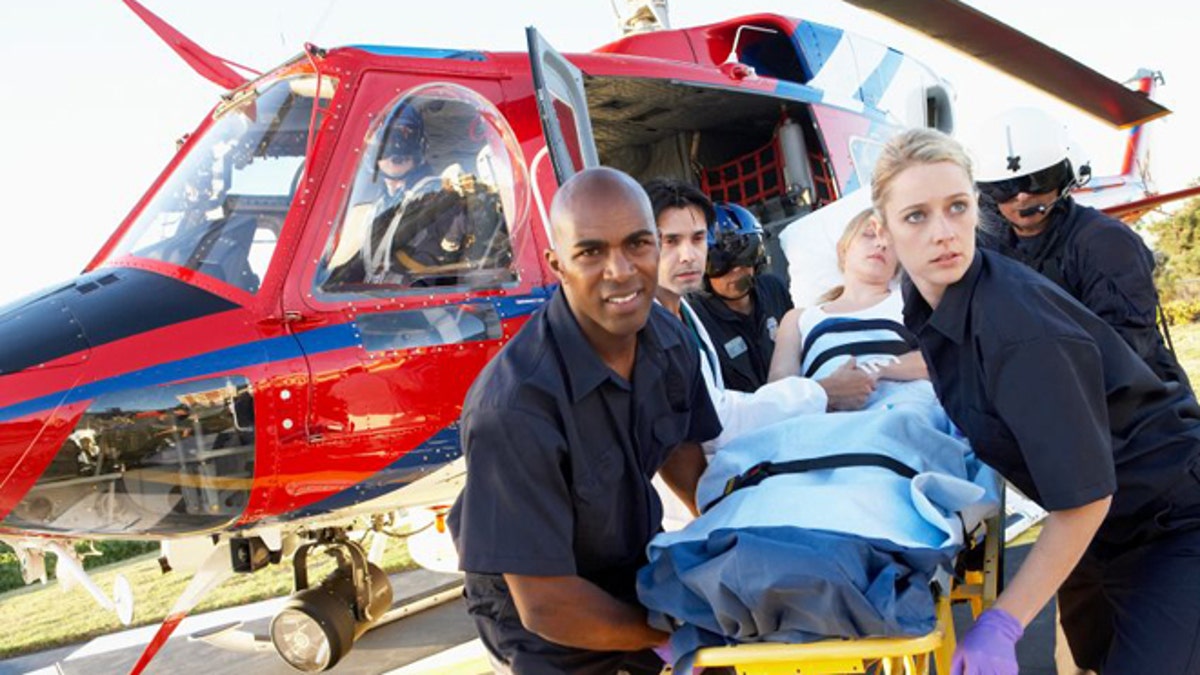
Emergency medical evacuation from a foreign country back home can sometimes cost $100,000 or more, depending on the extent of the illness or injury. (iStock)
Eddie Mikell thought he had planned the trip of a lifetime with his wife and another couple: renting a house for a week in the French countryside. But on the way from the Paris Charles de Gaulle to their idyllic retreat, a truck clipped their rental car. Mikell escaped with minor scratches, but the others weren’t so lucky. After extensive treatment at a local hospital, doctors warned that his wife and friends, all of whom were in body casts, could only be transported home by commercial airline in seats that reclined to fully flat.
So the party had to buy last minute seats on Air France for $6700 each (to add insult to injury, the airline that flew them to France refused to refund the unused portion of their return flight). Then there were the medical bills in France ($12,000), the $3200 ambulance ride back to Paris, the $3000 in damages to the rental car, and the value of the vacation that never was. “It has amounted to over $50,000, depleting all of my savings, and most of my retirement,” says Mikell.
Actually, Mikell got off lightly. Although most travelers correctly believe that something like this will never happen to them, emergency medical evacuation from a foreign country back home can sometimes cost $100,000 or more, depending on the extent of the illness or injury.
Several companies specialize in emergency medical air charters and annual memberships are surprisingly inexpensive considering the potential losses.
The best known are two Birmingham AL-based membership programs: Medjet Assist and AirMed. As long as you’re 150 miles or more from home, once you’re medically stabilized either will fly you to whatever hospital you or your family request at no cost.
Both companies offer annual plans for individuals and families, as well as coverage for individual trips.
Other providers include New Hampshire-based On Call International, which offers coverage when travelers need assistance more than 50 miles away from home, and Global Rescue. Annual membership costs vary widely, so it’s wise to shop around and compare the fine print.
All of these firms are careful to state that they do not provide “insurance”: rather, they are membership programs, in much the same way that the AAA offers services for its members. As such, none would have paid for the Merkel party’s medical bills in France. For that, there is standard travel insurance, from companies such as TravelGuard. This travel insurance specialist sells a “MedEvac” policy that includes insurance for medical expenses as well as medical evacuation coverage with no cost limit.
Some “premium” charge and credit cards, such as the American Express Platinum Card, offer emergency medical evacuation coverage, but the benefits have more restrictions than stand-alone plans (they might offer transport only to the nearest qualified hospital rather than to a hospital of your choice), even though the services provided are contracted out to some of the same companies mentioned above.
Many health insurance policies, such as those issued by Blue Cross or Aetna, will pay for emergency medical care overseas, but there still may be standard deductibles and co-payments, and the insured may have to pay costs out of pocket and get reimbursed later. (Medicare and Medicaid will not cover you overseas, however, unless you’ve bought supplemental coverage.) But they will not pay for medical jet transportation back home. Something to think about next time you travel outside far from home.
